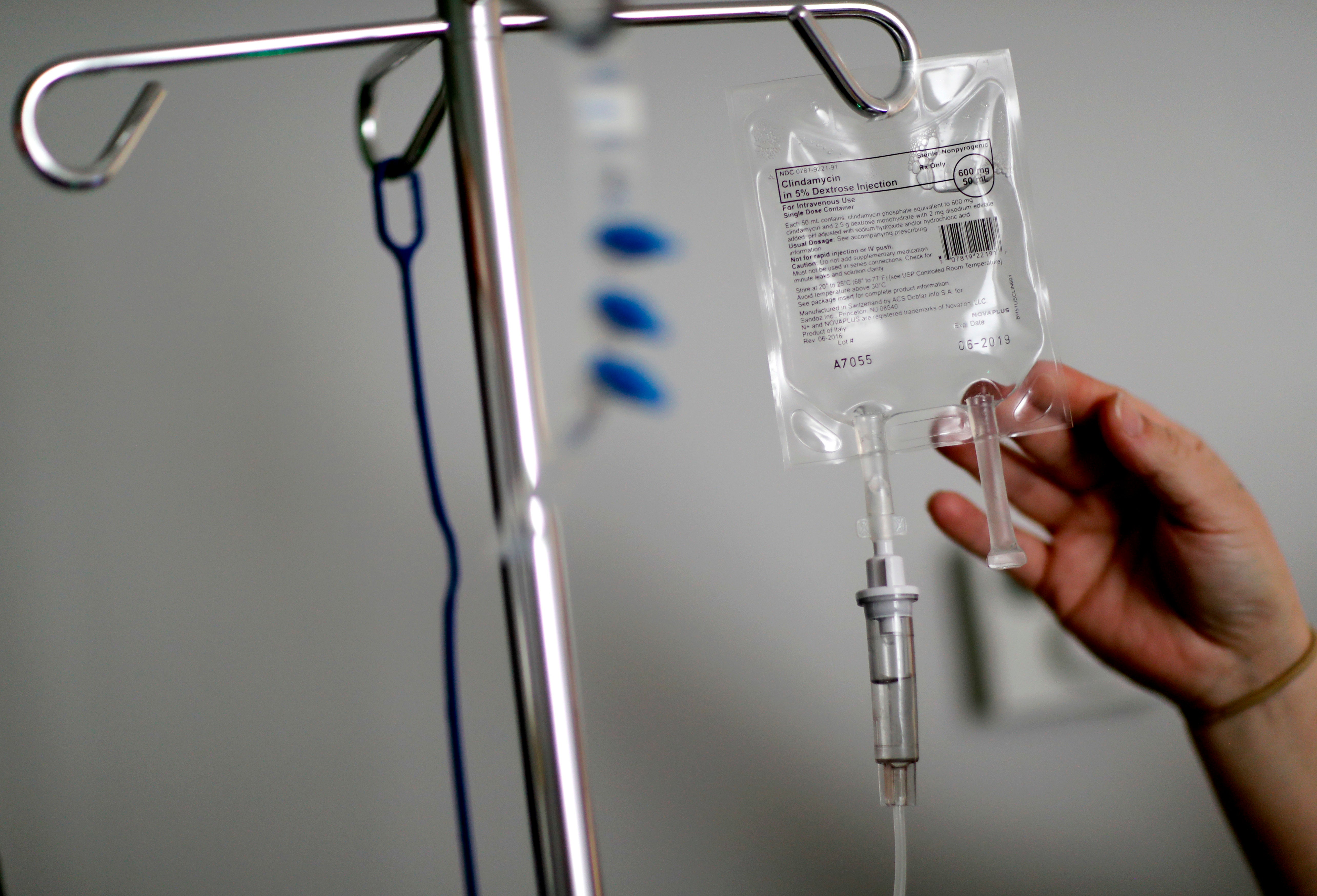Officials work to protect IV supplies in Florida after disruptions at North Carolina plant
Federal officials are working to move IV bags out of the path of Hurricane Milton, which is threatening another manufacturer of IV fluids even as hospitals nationwide are still reeling from disruptions caused by flooding at a large factory in North Carolina

Federal officials are working to move critical hospital supplies out of the path of Hurricane Milton, which is threatening another manufacturer of IV fluids even as hospitals nationwide are still reeling from disruptions caused by flooding at a large factory in North Carolina.
Medical manufacturer B. Braun Medical said Wednesday it is working with U.S. health authorities to move its inventory of IV bags to a secure facility away from its facility in Daytona Beach, Florida, which it closed ahead of the storm.
The company expects to resume manufacturing and shipping operations Friday morning, company spokesperson Allison Longenhagen said in an emailed statement.
Braun is one of several IV producers that have been tapped to boost supplies after Baxter International's North Carolina plant was damaged; the plant is responsible for about 60% of the country’s supply of sterile intravenous, or IV, fluids.
U.S. hospitals use more than 2 million IV bags daily to keep patients hydrated and deliver medicines. But the fallout from Hurricane Helene a couple of weeks ago forced some hospitals to begin conserving supplies.
Experts who have been tracking the disruptions were encouraged by the news from Florida.
“Baxter was caught off guard, but in this case, B. Braun had advance notice and was able to move all of their supply out of harm’s way,” said Mike Ganio, who studies drug shortages for the American Society of Health-System Pharmacists. “Anything that’s already been produced is out of the area and not susceptible to damage."
This week, the American Hospital Association called on the Biden administration to take additional steps to ease the shortage, including declaring a national emergency and invoking defense production authorities to compel private companies to prioritize IV production.
U.S. Health Secretary Xavier Becerra said in a letter to health professionals that the government is “doing all we can during this supply chain disruption,” but did not reference the government’s emergency powers.
Becerra also said his department is considering numerous steps, including temporary imports of foreign supplies, extending expiration dates on existing IV products and identifying other U.S. plants that can help boost production.
In recent years the U.S. government has taken similar steps to address a national shortage of baby formula and earlier medical supply shortages caused by COVID-19.
In a separate email, Food and Drug Administration officials noted that a number of IV fluids, including saline solution, were already on the agency’s drug shortage list before Hurricane Helene. In such cases, hospitals and specialty pharmacies are permitted to compound their own formulations of scarce supplies to meet demand.
Still, Ganio said FDA could ease regulations to speed the months-long process required for large compounding pharmacies to begin making new products, adding: “In order for it to be helpful in the near term, that timeline needs to be shortened.”
___
The Associated Press Health and Science Department receives support from the Howard Hughes Medical Institute’s Science and Educational Media Group. The AP is solely responsible for all content.
Bookmark popover
Removed from bookmarks